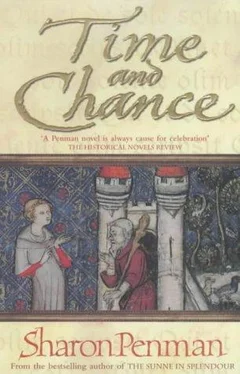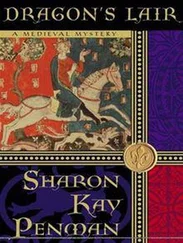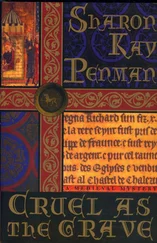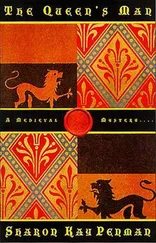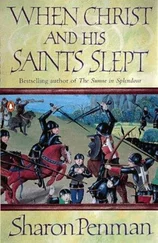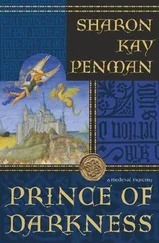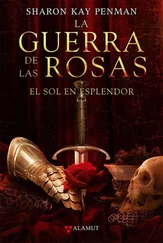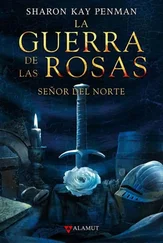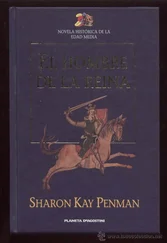Sharon Penman - Time and Chance
Здесь есть возможность читать онлайн «Sharon Penman - Time and Chance» весь текст электронной книги совершенно бесплатно (целиком полную версию без сокращений). В некоторых случаях можно слушать аудио, скачать через торрент в формате fb2 и присутствует краткое содержание. Жанр: Исторические приключения, на английском языке. Описание произведения, (предисловие) а так же отзывы посетителей доступны на портале библиотеки ЛибКат.
- Название:Time and Chance
- Автор:
- Жанр:
- Год:неизвестен
- ISBN:нет данных
- Рейтинг книги:4 / 5. Голосов: 1
-
Избранное:Добавить в избранное
- Отзывы:
-
Ваша оценка:
- 80
- 1
- 2
- 3
- 4
- 5
Time and Chance: краткое содержание, описание и аннотация
Предлагаем к чтению аннотацию, описание, краткое содержание или предисловие (зависит от того, что написал сам автор книги «Time and Chance»). Если вы не нашли необходимую информацию о книге — напишите в комментариях, мы постараемся отыскать её.
Time and Chance — читать онлайн бесплатно полную книгу (весь текст) целиком
Ниже представлен текст книги, разбитый по страницам. Система сохранения места последней прочитанной страницы, позволяет с удобством читать онлайн бесплатно книгу «Time and Chance», без необходимости каждый раз заново искать на чём Вы остановились. Поставьте закладку, и сможете в любой момент перейти на страницу, на которой закончили чтение.
Интервал:
Закладка:
“Yes,” she said unhesitatingly, and Ranulf thanked the Almighty for giving him this remarkable woman.
“I owe Hywel more than I could ever begin to calculate and he is as dear to me as my brothers in blood. I will right gladly go to Ireland to fetch him home.”
Ranulf’s first thought had been to take ship at Chester, for it was far larger than any of the Welsh ports and attracted numerous ships engaged in the Irish trade. But Peryf was as methodical and farsighted as he was pessimistic, and he’d sent scouts to keep watch over Mon’s harbors and cove-notched coastline. He was able to tell Ranulf, therefore, that there was a cog at Aber Menai, doing rigging repairs. And so Ranulf and the sons of Cedifor took the Llan-faes ferry across the Menai Straits and then headed west.
Aber Menai was the island’s most ancient port, a natural crossing for Welsh princes on their way to the royal manor of Aberffraw, and according to Peryf, both Davydd and Rhodri were reported to have been at Aberffraw for the past fortnight. Ranulf was rapidly developing respect for Peryf’s surveillance system, and it occurred to him that Hywel could do far worse than to make Peryf his seneschal. For himself, he sought no such honors. His soul would always be riven in twain, torn between his love for Wales and his loyalty to the English Crown.
After a cold, clear night strewn with stars, the day was born with an ice-edged caul. Snow from a midweek storm still clung in spots, and Ranulf’s breath was frosted in cloudlets of wispy white. The island climate was usually milder than the more mountainous heights of Gwynedd and this spell of frigid weather had surprised the sailors, slowing their repairs. But the ship’s master had assured Ranulf that they’d be ready to sail by the morrow and Ranulf could only take the man at his word.
Picking up shells, Ranulf sought to skip them across the water’s roiling surface, without much success. The cog was anchored out in the harbor, its single mast and furled sails silhouetted against the horizon like a tree stripped of leaves. Several children were playing at the water’s edge, chasing a spotted dog. The small cluster of houses looked out of place, as if dropped there by accident, naked and vulnerable to wind and the treacherous tides of Yr Afon Fenai. The church was tolling a mournful “passing bell” to seek prayers for the soul of one hovering near death. All in all, it was as bleak a scene as Ranulf could envision, an accurate mirror of his own mood.
He suspected that his edginess was due to the looming sea voyage. Despite the many times that he’d braved Channel crossings, he had never ventured out into the ocean itself, and he’d have been quite content to go to his grave with that particular challenge unmet. Now that he was committed to the endeavor, though, he was impatient to start, finding this time ashore to be as unpleasant in its own way as the time aboard was certain to be.
“Ranulf!” Turning at the sound of his name, he saw Caradog ap Cedifor ambling toward him. Caradog was the youngest of Cedifor’s many sons, with more than twenty years stretching between him and Peryf, and in consequence, he was the least-known to Ranulf of Hywel’s foster brothers. Like Peryf, he was of medium height, stocky and well muscled, with wind-blown hair the color of wet sand and eyes bright with the intrepid spirit of the young. He would be accompanying Ranulf to that distant isle known to the Welsh as Iwerddon, and he actually seemed delighted at the chance to risk drowning in the frigid waters of the Irish Sea.
“Peryf intends to row out to the ship and see if he can coax or coerce the master into sailing tonight. You want to come along?”
“Why not?” Ranulf followed Caradog up the beach, shivering as they headed into the wind. Knowing that Caradog’s father had Irish kindred, he asked the younger man if he’d ever been to Ireland, getting a toss of Caradog’s sandy head in reply.
“Nay, I have not. But Peryf crossed the Irish Sea when he went along with Hywel to visit Hywel’s lady mother.” Caradog’s smile soon became an impish grin. “Hywel says if ever there was a man born to spend all his days a hundred miles inland, it is Peryf. He fed the fish from Mon to Dublin and back again, and for a good year afterward, he’d get greensick at the mere mention of ships or the sea. That is why he dared not offer to come with you to find Hywel. Even rowing out into the harbor will likely cost him dear.”
“I’d wondered about that,” Ranulf confided. “I’ve been wondering, too, why Peryf turned to me. Since you’d already offered to go to Ireland on your own, why the need for me?”
Caradog’s laugh was carried off by the wind. “You ought to be able to guess the reason for that! Hywel says you were the old king’s youngest son.”
“Yes, I was…” Ranulf was puzzled and then amused. “Peryf still sees you as his little brother, does he?”
“Of course, and he secretly fears that I’d either drink myself into oblivion or become so besotted with the Dublin whores that I’d forget altogether about Hywel!”
Caradog laughed again, with such infectious humor that Ranulf laughed, too, glad that at least he’d have good company on this perilous journey. It was then that they heard the shout, saw Peryf running up the beach toward them.
Peryf was panting and his first gasped-out words were not all that intelligible to Ranulf. “One of your men just arrived with news of a ship seeking entry into the harbor at Cemlyn. That I understand, Peryf. But why do you think it is Hywel?”
“Because… because Cemlyn is not a port for trading. If a ship were bringing over goods from Ireland, it would most likely head for Llan-faes or Pwllheli. Why would it put in at Cemlyn? There’s no town there, and the nearest royal manor is at Cemais. Hywel must have paid them to let him ashore. Nothing else makes sense.”
Ranulf was still not convinced. “Suppose it was just coming in for repairs?”
Peryf’s messenger spoke up then. “It did not drop anchor, my lord Ranulf. The winds were contrary and it was unable to enter the harbor. After several failed attempts, it sailed off to the east, hugging the coast. If they had an urgent need for repairs, surely they’d have kept on trying? I followed for a time and it seemed to me that they were seeking another harbor on the sheltered side of the island. As I told Lord Peryf, I truly think their intent was to put passengers ashore.”
“Nothing else makes sense,” Peryf repeated. “I think we should ride for the east coast. There are several coves and harbors suitable for landing. Dulas, for one. But the best harbor by far is at Traeth Coch. I am certain that Hywel means to land there.”
“And what if you’re wrong and the cog sails ere we can get back to Aber Menai?”
Peryf shrugged. “We’ll make it worth his while to wait.”
The other man’s sudden, uncharacteristic extravagance proved-if it still needed proving-just how worried he truly was. Ranulf conceded the argument with a joke about getting Hywel to pay for the additional expenses, and hoped that he was not motivated by a desire to put off his sea voyage for another day.
THE ISLE known as Anglesey to the English and Mon to the Welsh had once been called Ynys Dywell, the Dark Island, so heavily wooded was it in bygone times. But by God’s Year 1171, much of its deep, primal forest had been cleared away, for the low-lying, fertile land was ideally suited to farming, and Mon had long functioned as Gwynedd’s granary. With neither mountains nor wealds to hinder their progress and less than fifteen miles to cover, the men expected to reach Traeth Coch before dark. Skirting the edges of the vast river marshes of Cors Ddyga, they soon had the sun at their backs. The morning’s chill had been overtaken by an afternoon warming, giving rise to patches of the fog so common to an island climate. By the time they were in sight of the church at Pentraeth, which overlooked the bay, dusk was beginning to cast lengthening shadows and the day’s light was slowly ebbing. The waters of Traeth Coch had darkened from sapphire to a twilight indigo and a ship was anchored in the cove.
Читать дальшеИнтервал:
Закладка:
Похожие книги на «Time and Chance»
Представляем Вашему вниманию похожие книги на «Time and Chance» списком для выбора. Мы отобрали схожую по названию и смыслу литературу в надежде предоставить читателям больше вариантов отыскать новые, интересные, ещё непрочитанные произведения.
Обсуждение, отзывы о книге «Time and Chance» и просто собственные мнения читателей. Оставьте ваши комментарии, напишите, что Вы думаете о произведении, его смысле или главных героях. Укажите что конкретно понравилось, а что нет, и почему Вы так считаете.
